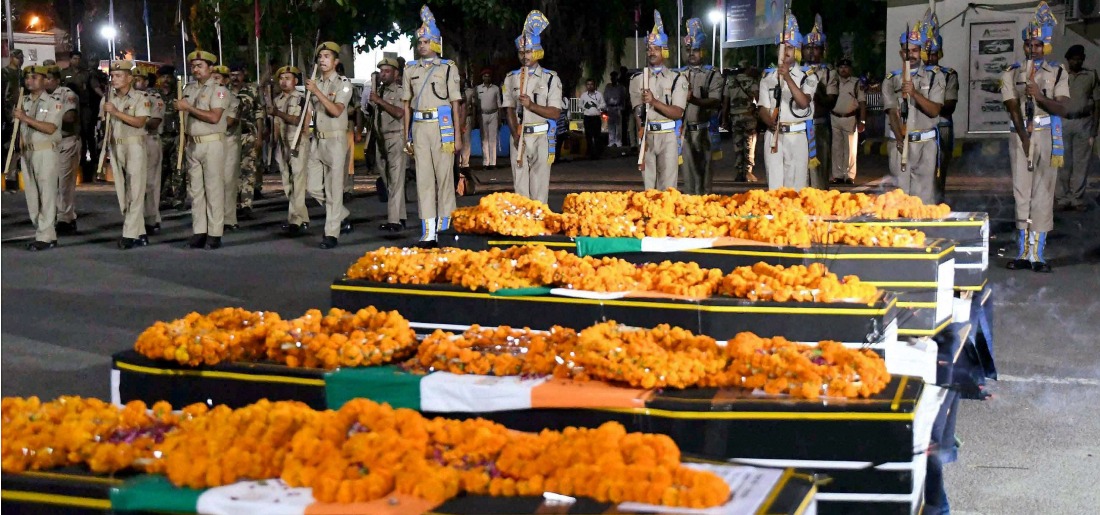Image Courtesy: Indiatimes
The Sukma incident, which left 26 CRPF personnel dead, has generated polarizing responses from all over the country. Veering on the extremes of political opinions endorsed by both the State and the Maoists, there seems to be no middle ground. On one hand, we have the army personnel who have died, defending the state; on the other, the Maoists are left with no other option but to reply back in kind to what they see as a threat to their tribal land. Attempts at redressal have either met with resistance or violence from both sides.
The responses to the incident have poured in endlessly but even then, there is no moderation on the views that have been generated – vitriolic even as they pander to one side while condemning the other. Every other person expressing his/her views is either right or wrong – like the way the battle between the state and the people is turning out to be. Even then in the midst of all this, we unfortunately have to face another problem and that is, chancers of the worst kind, who see it fit to exploit the current situation to their advantage.
Jawaharlal Nehru University has constantly been pulled into controversy. Since the 9 February 2016 incident, it has become common parlance to categorise JNU and all those within its campus walls as “anti-nationals”. Thus, it has been fertile ground for opportunists to continually feed on. So after the Sukma incident, it would not be thorough from their part to not bring the university to the forefront for all the wrong reasons yet again.
It has emerged that pro-Hindutva sites like Patheos and Srishta News have been claiming that “whenever there were attacks on the army by Naxals, students groups in the varsity organised celebrations”. In an attempt to add weight to their flimsy accusations, they resorted to putting up pictures of students celebrating after the JNUSU elections. Posters and graffiti talking about the Naxal movement and people’s struggles have also been included in the false reports.
Media is an effective medium through which citizens of a country can be made aware of the happenings in the country. Sadly there has been a trend of manipulating the media in order to deceive the public. This can be seen in the case of Rohith Vemula where the issue of his caste was brought in to divert the actual issue of social ostracism through government institutions. Similarly, when Akhlaq was murdered in Dadri, the issue of whether or not the meat was beef took precedence over the murder itself. We can see this trend being perpetuated with the Sukma incident as well. There is no doubt that the methods used by the Maoists are wrong. However, the state which is supposed to look after the well-being of its people has chosen to remain apathetic. As we are well aware, this is not a government for the people but a bourgeois-ruling class.
These are issues that need to be paid more attention to. Instead, what takes centre-stage is the question of a “problematic” Left against a “patriotic” Right. These claims do the disservice of drawing attention away from the real issues that need to be addressed with regards to problematic areas in the country. But until that actually happens, the attempts at pulling the veil over the people’s eyes won’t be going away any time soon.
Read An Inquest into the Death of Rohith Vemula here.
Read Naming the Muslim by Sayori Ghoshal here.
Read T. M. Krishna's letter to the Prime Minister regarding the Dadri incident here.
Watch an interview with Romila Thapar on JNU Unrest here.





